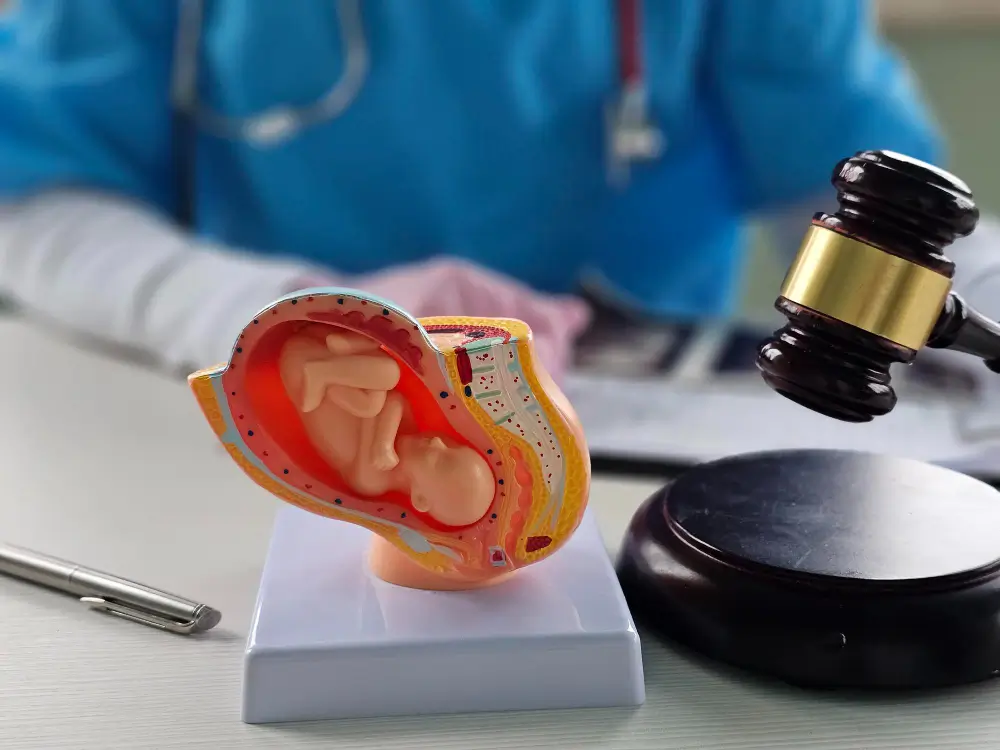India’s Assisted Reproductive Technology (ART) Act has undergone significant legal reforms to ensure ethical practices, protect all parties involved, and regulate the growing fertility industry. These changes aim to provide a structured framework for ART services, including in vitro fertilization (IVF), gamete donation, and surrogacy in India. This article delves into the pivotal legal modifications introduced by the ART Act, highlighting their implications for intended parents, donors, and fertility clinics, as well as updates in surrogacy laws.
Key Highlights of the Updated ART Act
Regulatory Oversight and National Registry
A cornerstone of the ART Act is the establishment of a National Assisted Reproductive Technology and Surrogacy Registry. This centralized database mandates the registration of all ART clinics and banks, ensuring they adhere to prescribed standards concerning infrastructure, manpower, and diagnostic facilities. Registration is valid for five years and is subject to renewal, with the National and State Boards overseeing compliance and policy formulation. Such oversight also ensures that surrogacy programs follow ethical and legal norms throughout the country.
Ethical Guidelines and Prohibitions
The Act enforces strict ethical guidelines to prevent exploitation and unethical practices:
Sex-Selective Procedures: The advertisement or offering of sex-selective ART procedures is prohibited, with severe penalties for violations.
Commercialization: Commercial surrogacy and egg donation are banned. Donors are prohibited from receiving monetary compensation beyond medical expenses, insurance coverage, or surrogacy fees.
Sale and Transfer Restrictions: The sale, transfer, or use of gametes, zygotes, and embryos is restricted to prevent trafficking and unauthorized use, supporting a safe and transparent surrogacy process.
Donor Regulations
The ART Act introduces stringent criteria for gamete donors:
Eligibility: Donors must be between 23 and 35 years of age for egg donation and 21 to 55 years for sperm donation.
Donation Limits: An individual donor can donate only once in their lifetime, with a maximum of seven oocytes retrieved per donation.
Screening: Donors undergo comprehensive medical and genetic screening to ensure the health and safety of the gametes.
Anonymity: Donors’ identities are kept confidential, and they relinquish all parental rights over any resulting children. Agencies such as Indian Egg Donors collaborate with a surrogate mother agency to facilitate safe donor matching.
Rights of Children Born Through ART
Children born via ART are recognized as the biological offspring of the commissioning couple, granting them the same legal rights as naturally conceived children. The Act emphasizes that donors have no parental rights or claims over the child, while the surrogacy laws protect the rights of both children and intended parents.
Surrogacy Regulations
The Surrogacy (Regulation) Act, 2021, complements the ART Act by setting specific guidelines for surrogacy:
Eligibility: Only married Indian couples with a history of infertility are permitted to opt for surrogacy in India. Single women, widows, and divorcees aged 35 to 45 may also be eligible under certain conditions.
Genetic Link Requirement: At least one of the intending parents must have a genetic link to the child. This stipulation has faced legal scrutiny, with the Supreme Court ruling that the requirement should not apply retrospectively, especially for individuals with medical conditions like MRKH syndrome.
Altruistic Surrogacy: Surrogacy must be altruistic, with no monetary compensation beyond medical expenses and insurance coverage. Proper compliance ensures the surrogacy program is ethical and legal.
Legal Agreements and Counseling
Before proceeding with ART procedures, all parties—intended parents, donors, and surrogates—must enter into legally binding agreements outlining their rights and responsibilities. Additionally, counseling is mandated to ensure informed consent and address the emotional and psychological aspects of ART. Agencies such as Indian Egg Donors guide intended parents through the surrogacy process, ensuring transparency and legal compliance.

Penalties for Non-Compliance
The ART Act stipulates stringent penalties for violations:
Sex-Selective Procedures: Engaging in or advertising sex-selective ART procedures can lead to imprisonment ranging from 5 to 10 years.
Unlawful Practices: Unauthorized sale or transfer of gametes and embryos, or operating unregistered ART clinics, attracts severe legal consequences. The law also governs the surrogacy price to prevent exploitation.
Role of Agencies Like Indian Egg Donors
Agencies such as Indian Egg Donors play a pivotal role in the ART ecosystem. They assist intended parents in finding suitable egg donors and navigating a trusted surrogate mother agency network. By partnering with registered ART banks and clinics, these agencies help intended parents understand surrogacy laws, manage the surrogacy process, and select the right surrogacy program.
Conclusion
The legal reforms introduced by the ART Act represent a significant stride towards ethical practices and regulation in assisted reproductive technologies in India. By establishing clear guidelines, regulating the surrogacy process, and monitoring surrogacy prices, the Act aims to protect all stakeholders and ensure the welfare of children born through ART. As the field continues to evolve, ongoing legal updates will be essential to address emerging challenges and uphold the integrity of reproductive healthcare.
Frequently Asked Questions:-
Q: What is the ART Act in India?
Ans : The ART Act regulates assisted reproductive technologies, ensuring safe, ethical, and legal fertility treatments while setting clear surrogacy laws.
Q: Who can donate eggs or sperm under the ART Act?
Ans : Healthy donors aged 23–35 for eggs and 21–55 for sperm, with strict screening and donation limits, can participate in a registered surrogacy program.
Q: Can donors receive payment in India?
Ans : No, donors can only be reimbursed for medical expenses and insurance; the surrogacy price is strictly non-commercial.
Q: Who has parental rights for children born through ART?
Ans : The intended parents have full parental rights; donors have no legal claims over the child. This applies across all surrogacy cases in India.
Q: What is altruistic surrogacy under the Act?
Ans : Surrogacy must be non-commercial, with the surrogate only receiving medical care and insurance coverage, guided by a reliable surrogate mother agency to manage the surrogacy process.

Dr. Pooja Patel
Dr. Pooja Patel is a Chief Surrogacy Coordinator at Surrogacy4all. She has 10 years of experience in Anesthesiology and critical care medicine.
She received her medical degree from Seth GS Medical College and K.E.M Hospital in India. She then completed an internship. She finished her Anesthesia residency at Grant Govt Medical College and JJ Group of Hospitals in India.










